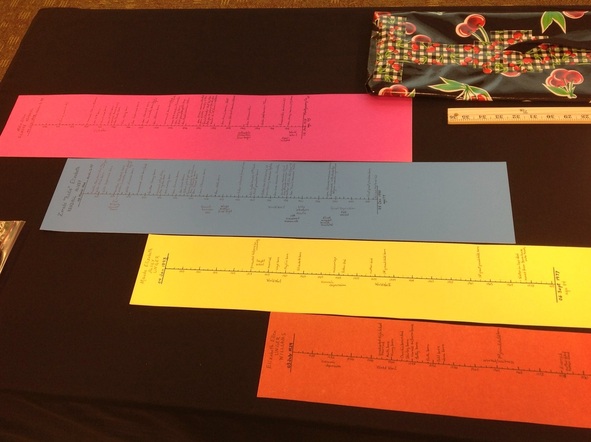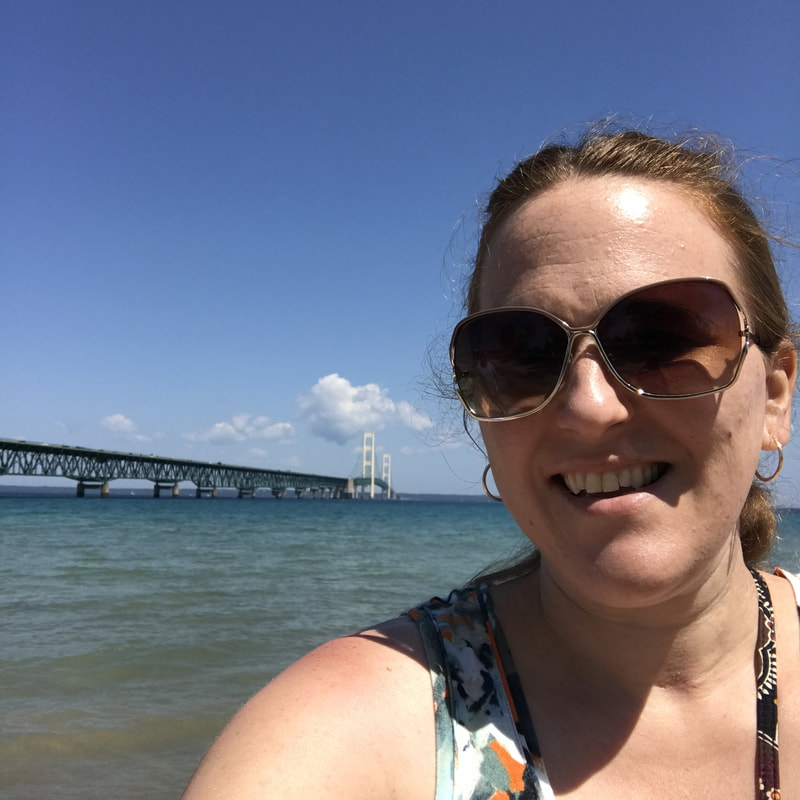1.) They allow you to visualize an ancestor's major life events all at once. Very helpful for making sure that dates make sense (for example, if a U.S. land grant happened before the person's immigration date, you know something is wrong there).
2.) Timelines enable you to see the gaps in your data. So, timelines themselves are a very helpful research tool that should be used even when you don't have a lot of life 'events' to put into the timeline.
3.) Placing a historical timeline next to a personal timeline can help you understand WHY your ancestor immigrated, or moved, or joined the military, or contracted cholera, etc.
4.) Making timelines, either on poster board or on a computer, is inexpensive. Most genealogy software these days does have the ability to construct timelines for you, but you don't NEED those programs to do it. She showed us a simple way to use Microsoft Word to construct a basic timeline.
5.) Timelines are great ways to get kids involved in family history research. My children are still too young to understand many genealogical concepts, like generations and historical context, BUT they DO understand life events, like being born, going to school, getting married, having children, etc. I can make a timeline for my great-grandmother and visually show them that she did all of these things, even if they don't yet 'get' the scope of how long ago these things occurred.
Betty L. Warren's contact information can be found on this web page.
Cyndi's List also has a great collection of websites that can help you create family history timelines and world history timelines.


